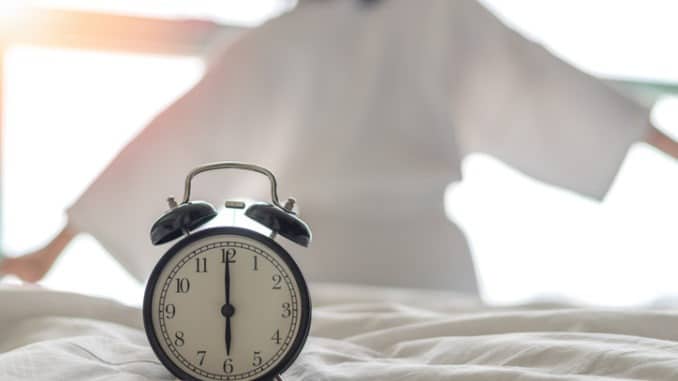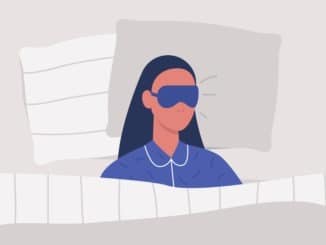
Getting a good night’s rest shouldn’t be so stressful. If counting sheep isn’t doing it for you, try these five simple ways to have a more restful night
CREDIT: This is an edited version of an article that originally appeared on Happiful
Weighted blankets
If you find yourself tossing and turning most nights, a weighted blanket may be able to help. Users have reported feeling an increased sense of calm, and a reduction in stress and anxiety. Providing a comforting feeling of pressure, without being restrictive or smothering, weighted blankets can create a sense of safety and relaxation.
Optimise your environment
Where you sleep can have a surprising impact on how well you sleep. ‘Phones, TV, laptops and tablets are not only distractions, but the blue light they emit can delay the release of sleep-inducing melatonin, leaving you more alert and less likely to fall asleep.
Make your bedroom a source of serenity; according to the Sleep Council, setting the temperature to a cool 16–18°C is ideal. Swap out your bedside charger for an old-fashioned alarm clock, and remove unnecessary tech. It may take some getting used to, but soon you’ll find yourself drifting off in no time.
Think ‘outside the box’
Taking a more holistic approach can have lasting benefits. If you struggle to sleep thanks to anxiety, stress, or unhealthy habits, hypnotherapy may help. As well as helping you to enter a deeply relaxing state, hypnotherapy taps into your subconscious, enabling positive suggestions to change bad sleep habits, and can assist in reducing feelings of anxiety around sleep.
If hypnotherapy isn’t for you, meditating before bed can help to decrease stress, anxiety and tension, while promoting calm and relaxation.
Plan ahead
What – and when – you eat can affect both your sleep quality and quantity. Try to reduce your caffeine intake by switching to decaf tea and coffee and cut back on caffeine-rich foods, such as chocolate and ice cream, before bed.
Having leafy green vegetables for dinner can help to boost your magnesium levels, while avoiding too much sugar in the evenings could keep your blood sugar more balanced, avoiding spikes that lead to feeling wide awake.
Set the scene
Give yourself time to ‘get in the mood’ for a good night’s sleep. Research suggests taking a hot soak around 90 minutes before bed could help you fall asleep more quickly, as this can help change your core temperature. Turn your time in the tub into a chance to unwind with the help of soothing music, or give meditation, mindfulness or wellbeing podcasts a try.




Be the first to comment